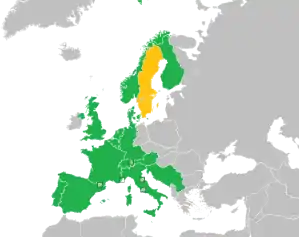Eurovision Song Contest 1964
The Eurovision Song Contest 1964 was the 9th edition of the annual Eurovision Song Contest. It took place in Copenhagen, Denmark, following Grethe & Jørgen Ingmann's win at the 1963 contest in London, United Kingdom with the song "Dansevise". It was the first time the contest took place in Denmark - also marking the first time a Nordic country hosted the event. The contest was held at Tivolis Koncertsal on Saturday 21 March 1964, and was hosted by Lotte Wæver.
| Eurovision Song Contest 1964 | |
|---|---|
 | |
| Dates | |
| Grand final | 21 March 1964 |
| Host | |
| Venue | Tivolis Koncertsal Copenhagen, Denmark |
| Presenter(s) | Lotte Wæver |
| Musical director | Kai Mortensen |
| Directed by | Poul Leth Sørensen |
| Executive supervisor | Miroslav Vilček |
| Host broadcaster | Danmarks Radio (DR) |
| Opening act | Tivoli Youth Guard |
| Interval act | Ballet-Harlequinade |
| Website | eurovision |
| Participants | |
| Number of entries | 16 |
| Debuting countries | |
| Returning countries | None |
| Non-returning countries | |
Participation map
| |
| Vote | |
| Voting system | Ten-member juries awarded points (5, 3 and 1) to their three favourite songs. |
| Nul points | |
| Winning song | "Non ho l'età" |
Sixteen countries participated in the contest; Portugal made its debut, while Sweden decided not to enter after its participation the year prior.[1]
The winner was Italy with the song "Non ho l'età", performed by Gigliola Cinquetti, written by Nicola Salerno and composed by Mario Panzeri. This was Italy's first victory in the contest, which was the first victory for a Southern European country. At the age of 16 years and 92 days, Gigliola Cinquetti became the youngest winner of the contest yet; a record she held until 1986.[2]
Location
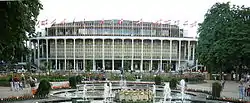
The host venue for the contest was Tivolis Koncertsal (Tivoli Concert Hall) in Denmark's capital city Copenhagen, which lies within Denmark's famous amusement park and pleasure garden Tivoli Gardens. The park, alluding by its name to the Jardin de Tivoli that existed in Paris, was opened on 15 August 1843, and is the second oldest amusement park in the world, after Dyrehavsbakken in nearby Klampenborg.[3]
Format
Each country had 10 jury members who distributed three points among their one, two, or three favourite songs. The points were totaled and the first, second, and third placed songs were awarded 5, 3, and 1 votes in order. If only one song got every point within the jury it would get all 9 points. If only two songs were chosen, the songs would get 6 and 3 points in order.[4]
A political protest occurred after the Swiss entry: a man trespassed onto the stage holding a banner that read "Boycott Franco & Salazar". Whilst this was going on, television viewers were shown a shot of the scoreboard; once the man was removed the contest went on.[5]
The immediate response of the Koncertsal audience to the Italian entry was markedly enthusiastic and prolonged and, most unusually for a contest performance, after leaving the stage Gigliola Cinquetti was allowed to return to take a second bow. Her performance was given an unscheduled repeat on British television the following afternoon. In the event, she won the most crushing victory in the history of the contest, with a score almost three times that of her nearest rival, a feat extremely unlikely ever to be beaten under the post-1974 scoring system.
Lost recordings
As with the 1956 contest, no complete video recording of the actual contest performance was known to survive; however, unlike the 1956 contest (where the interval act is mostly missing), a complete audio recording does exist in the form of the DR radio broadcast. Some clips of the contest survive, including part of the opening ceremonies, including some of presenter Lotte Wævers welcoming remarks, as well as the majority of the repeat perfomance of "Non ho l'età" from the end of the broadcast. A copy of the entire contest is claimed to exist in the French television archives, although this is currently unconfirmed. [6] A persistant myth, even repeated on the official Eurovision site, is that the tape was destroyed in a fire in the 1970s. More recent interviews with DR, however, state that the broadcast was never recorded in the first place, allegedly due to no tape machines being available at the studio.[7]. The audio of the entire show, however, is still available online, and fan reconstructions using available clips, press-photos and other sources have been made.[8] In 2013, fan channel ESCplus released the full reprise of the winning song in Germany, edited together using recently recovered footage from Germany.[9]
Participating countries
Sweden did not participate because of a boycott by singers. They did however broadcast it. Portugal made its début in the contest, however they became the first country to score nul points on their début. Germany, Switzerland, and Yugoslavia also scored nul points for the first time. The Netherlands became the first country to send a singer of non-European ancestry, Anneke Grönloh was of Indonesian descent.[4] The Spanish group Los TNT was the first group of three or more participants of the history of the ESC.
Returning artists
One artist returned to the contest this year, Switzerland's Anita Traversi that represented the country in 1960.[4]
Conductors
Each performance had a conductor who conducted the orchestra.[10][11]
 Luxembourg – Jacques Denjean
Luxembourg – Jacques Denjean Netherlands – Dolf van der Linden
Netherlands – Dolf van der Linden Norway – Karsten Andersen
Norway – Karsten Andersen Denmark – Kai Mortensen
Denmark – Kai Mortensen Finland – George de Godzinsky
Finland – George de Godzinsky Austria – Johannes Fehring
Austria – Johannes Fehring France – Franck Pourcel
France – Franck Pourcel United Kingdom – Harry Rabinowitz
United Kingdom – Harry Rabinowitz Germany – Willy Berking
Germany – Willy Berking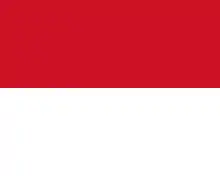 Monaco – Michel Colombier
Monaco – Michel Colombier Portugal – Kai Mortensen
Portugal – Kai Mortensen Italy – Gianfranco Monaldi
Italy – Gianfranco Monaldi.svg.png.webp) Yugoslavia – Radivoje Spasić
Yugoslavia – Radivoje Spasić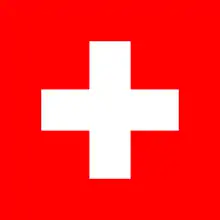 Switzerland – Fernando Paggi
Switzerland – Fernando Paggi.svg.png.webp) Belgium – Henri Segers
Belgium – Henri Segers.svg.png.webp) Spain – Rafael Ibarbia
Spain – Rafael Ibarbia
Results
Scoreboard
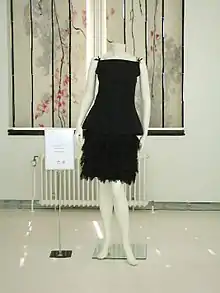
| Voting results | ||||||||||||||||||
|---|---|---|---|---|---|---|---|---|---|---|---|---|---|---|---|---|---|---|
| Luxembourg | 14 | 3 | 3 | 5 | 3 | |||||||||||||
| Netherlands | 2 | 1 | 1 | |||||||||||||||
| Norway | 6 | 5 | 1 | |||||||||||||||
| Denmark | 4 | 1 | 3 | |||||||||||||||
| Finland | 9 | 3 | 3 | 3 | ||||||||||||||
| Austria | 11 | 5 | 1 | 5 | ||||||||||||||
| France | 14 | 1 | 3 | 5 | 3 | 1 | 1 | |||||||||||
| United Kingdom | 17 | 1 | 5 | 3 | 1 | 1 | 1 | 5 | ||||||||||
| Germany | 0 | |||||||||||||||||
| Monaco | 15 | 3 | 5 | 3 | 1 | 3 | ||||||||||||
| Portugal | 0 | |||||||||||||||||
| Italy | 49 | 5 | 5 | 5 | 5 | 5 | 3 | 3 | 5 | 5 | 3 | 5 | ||||||
| Yugoslavia | 0 | |||||||||||||||||
| Switzerland | 0 | |||||||||||||||||
| Belgium | 2 | 1 | 1 | |||||||||||||||
| Spain | 1 | 1 | ||||||||||||||||
5 points
Below is a summary of all 5 points in the final:
| N. | Contestant | Voting nation |
|---|---|---|
| 8 | Italy | Austria, Belgium, Finland, Luxembourg, Netherlands, Portugal, United Kingdom, Yugoslavia |
| 2 | Austria | Italy, Spain |
| United Kingdom | Norway, Switzerland | |
| 1 | France | Monaco |
| Luxembourg | Germany | |
| Monaco | France | |
| Norway | Denmark |
Broadcasters, commentators and spokespersons
Spokespersons
Listed below is the order in which votes were cast during the 1964 contest along with the spokesperson who was responsible for announcing the votes for their respective country.[14]
 Luxembourg – TBC
Luxembourg – TBC Netherlands – Pim Jacobs
Netherlands – Pim Jacobs Norway – Sverre Christophersen
Norway – Sverre Christophersen Denmark – Pedro Biker
Denmark – Pedro Biker Finland – Poppe Berg
Finland – Poppe Berg Austria – Walter Richard Langer
Austria – Walter Richard Langer France – Jean-Claude Massoulier
France – Jean-Claude Massoulier United Kingdom – TBC
United Kingdom – TBC Germany – Claudia Doren
Germany – Claudia Doren Monaco – TBC
Monaco – TBC Portugal – Maria Manuela Furtado
Portugal – Maria Manuela Furtado Italy – Rosanna Vaudetti
Italy – Rosanna Vaudetti.svg.png.webp) Yugoslavia – Oliver Mlakar (Co-host of the 1990 contest)
Yugoslavia – Oliver Mlakar (Co-host of the 1990 contest) Switzerland – Alexandre Burger
Switzerland – Alexandre Burger.svg.png.webp) Belgium – Luc Beyer de Ryke
Belgium – Luc Beyer de Ryke.svg.png.webp) Spain – Víctor Balaguer (Spanish representative in 1962)
Spain – Víctor Balaguer (Spanish representative in 1962)
Broadcasters and commentators
Each national broadcaster also sent a commentator to the contest, in order to provide coverage of the contest in their own native language.
| Country | Broadcaster(s) | Commentator(s) | Ref(s) | |
|---|---|---|---|---|
| Participating countries | ||||
| ORF | Willy Kralik | [14] | ||
| RTB | French: Paule Herreman | [14][15] | ||
| BRT | Dutch: Herman Verelst | [14] | ||
| DR TV | No commentator | [14] | ||
| Suomen Televisio | Aarno Walli | [14] | ||
| Yleisohjelma | Erkki Melakoski | |||
| Première Chaîne ORTF | Robert Beauvais | [14][15] | ||
| Deutsches Fernsehen | Hermann Rockmann | [14] | ||
| Programma Nazionale | Renato Tagliani | [14] | ||
| Télé-Luxembourg | Jacques Navadic | [14] | ||
| Télé Monte Carlo | Robert Beauvais | |||
| NTS | Ageeth Scherphuis | [14][16] | ||
| NRK and NRK P1 | Odd Grythe | [14] | ||
| RTP | A. Gomes Ferreira | [14] | ||
| TVE | Federico Gallo | [14] | ||
| TV DRS | German: Theodor Haller | [14] | ||
| TSR | French: Robert Burnier | [17] | ||
| TSI | Italian: Renato Tagliani | |||
| BBC TV | David Jacobs | [14][11] | ||
| BBC Light Programme | Tom Sloan | |||
| Televizija Beograd | Serbo-Croatian: Miloje Orlović | |||
| Televizija Zagreb | Serbo-Croatian: Gordana Bonetti | |||
| Televizija Ljubljana | Slovene: Tomaž Terček | |||
| Non-participating countries | ||||
| Sveriges TV and SR P1 | Sven Lindahl | [14][18] | ||
References
- "Copenhagen 1964". Eurovision.tv.
- O'Connor, John Kennedy. The Eurovision Song Contest - The Official Celebration. Carlton Books, 2015. ISBN 978-1-78097-638-9. Pages 32-33
- Tivoli – Tivoli Gardens Copenhagen – Copenhagen Portal – Tourist Guide. Copenhagenet.dk. Retrieved on 15 August 2011.
- "Eurovision Song Contest 1964". EBU. Retrieved 14 June 2012.
- Tragaki, Dafni (2002). Empire of Song: Europe and Nation in the Eurovision Song Contest. Rowman & Littlefield. p. 224. ISBN 9780810888173.
- http://inatheque.ina.fr/doc/TV-RADIO/DA_CPF96003532/9eme-concours-eurovision-de-la-chanson-1964?rang=334
- Fan reconstruction of ESC 1964, YouTube
- Full reprise 1964
- "And the conductor is..." Retrieved 10 July 2018.
- Roxburgh, Gordon (2012). Songs for Europe: The United Kingdom at the Eurovision Song Contest. Volume One: The 1950s and 1960s. Prestatyn: Telos Publishing. pp. 348–358. ISBN 978-1-84583-065-6.
- "Eurovision Song Contest 1964". The Diggiloo Thrush. Retrieved 4 March 2012.
- "Eurovision Song Contest 1964". 4Lyrics.eu. Retrieved 16 September 2020.
- "Eurovision 1964 - Cast and Crew". IMDb. Retrieved 18 July 2020.
- Christian Masson. "1964 - Copenhague". Songcontest.free.fr. Retrieved 10 August 2012.
- "Dokumentaire over Schiermonnikoog". De Leeuwarder Courant (in Dutch). 23 March 1964.
- "Programme TV du 15 au 21 mars". Radio TV - Je vois tout. Lausanne, Switzerland: Le Radio SA. 12 March 1964.
- Thorsson, Leif (2006). Melodifestivalen genom tiderna [Melodifestivalen through time]. Stockholm: Premium Publishing AB. p. 48. ISBN 91-89136-29-2.
